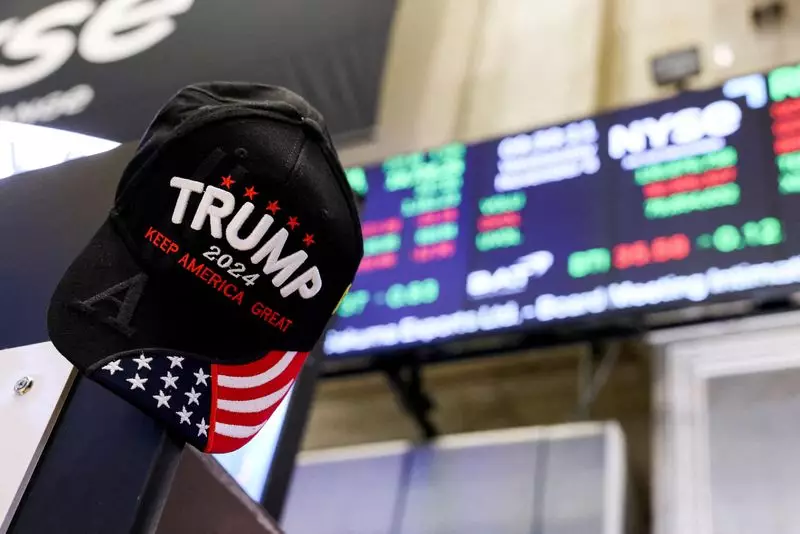On Monday, Wall Street’s indices closed on a high note, demonstrating a renewed investor confidence driven by strategic political appointments and expectations surrounding economic policies. The small-cap Russell 2000 index reached unprecedented heights, a clear indication of shifting sentiments among investors. One of the major catalysts for this uptick was the nomination of Scott Bessent as U.S. Treasury Secretary, a decision that is believed to have played a significant role in reducing bond yields. The appointment not only ended weeks of uncertainty but also ignited discussions on a potential ceasefire between Israel and Lebanon, which contributed to a decline in oil prices, consequently impacting the Energy sector negatively.
Scott Bessent’s selection has been welcomed by many market analysts, with some postulating that he may implement measures aimed at curtailing excessive government borrowing. His approach may involve a balancing act; while he is expected to uphold fiscal and trade pledges made during the election campaign, his fiscal discipline could mitigate concerns about new tariffs that had previously led to an increase in bond yields. Commentary from investment analysts, such as James Reilly from Capital Economics, illustrates that Bessent’s appointment may have shifted the focus among investors from trade tariffs to a more nuanced understanding of fiscal policies.
Based on preliminary data, the S&P 500 closed up by 17.81 points, swelling 0.30% to settle at 5,987.15 points. The Nasdaq Composite was also on an upward trajectory, increasing by 51.50 points or 0.27%, closing at 19,055.15 points. Meanwhile, the Dow Jones Industrial Average soared by an impressive 439.02 points, marking a 0.99% rise to reach 44,735.53 points. Advancing shares beat declining ones by a ratio of 3.01-to-1 on the New York Stock Exchange, with 836 stocks hitting new highs, signaling a robust market environment.
In a noteworthy performance, the small-cap index not only achieved a record intraday high of 2,466.49 but also surpassed its previous peak from three years ago, underscoring a trend where typically lagging stocks are beginning to outperform. This shift is partly attributed to the Federal Reserve’s decisions regarding interest rates, creating an environment conducive to small and mid-cap stock growth, as highlighted by Adam Sarhan of 50 Park Investments.
The drop in Treasury yields has catalyzed growth in the Real Estate sector, which is particularly sensitive to interest rates, as evidenced by a 4.5% increase in the Housing index. Analysts from Barclays have consequently revised their forecasts for the S&P 500, projecting growth through 2025, while Deutsche Bank has set a target that envisions the index reaching 7,000 points by the same year. However, there is an undeniable undercurrent of concern regarding inflation. Investors are cautious, mindful that rising inflation rates could compel the Federal Reserve to rethink its current approach to monetary policy.
Amid these fluctuations in sentiment, the Consumer Discretionary sector has demonstrated resilience, buoyed by a 2.2% increase in Amazon shares. Investor anticipation is building towards the Personal Consumption Expenditure report, which is anticipated to provide key insights into inflation trends just as the U.S. approaches the Thanksgiving holiday. Special attention is being paid to Macy’s which faced a 2.2% decline following the postponement of its third-quarter results due to an accounting matter. Conversely, Bath & Body Works saw a 16.5% surge in shares after it raised its full-year profit forecast.
The current landscape on Wall Street suggests a blend of optimism and caution. With small-cap stocks leading the charge, bolstered by the appointment of a Treasury Secretary who may impart fiscal prudence, investors are cautiously optimistic. However, the looming shadow of inflation pressures and monetary policy adjustments remains, compelling market participants to remain vigilant as they navigate this dynamic economic landscape. The interplay of political decisions, sector performance, and investor sentiment paints a complex but exciting picture for the future of U.S. equities.

